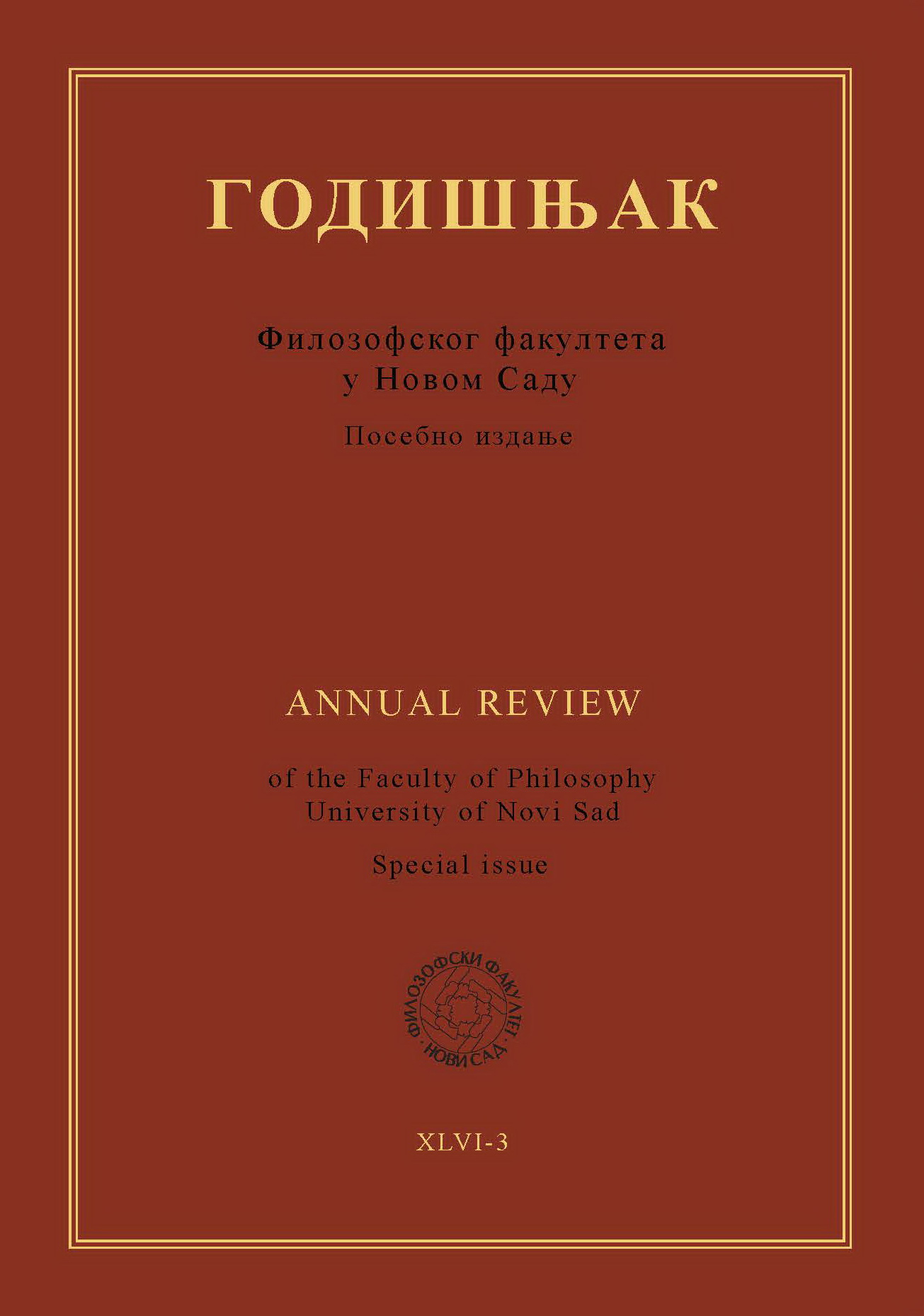ON EFFECTS OF THE (UN)RELIABLE NARRATOR OF MAURITIAN « THE KNOT OF VIPERS »
Main Article Content
Abstract
The Green Sari (Le Sari vert, 2009) by Ananda Devi, a novel about domestic hatred and abuse, revolves around a family of Indian origin living in Mauritius. The novel is written as an internal monologue of an old man (Dokter Dieu) who, in his final hours, is being cared for by his daughter and granddaughter. The main story is, in fact, a string of memories about how his young wife mysteriously lost her life, while his daughter and granddaughter try to uncover the truth about that death. It is especially interesting that the only narrative voice in the novel is that of the old man, so the only insight the reader gets into the other two characters is through his interpretation of the words they spoke. Therefore the focus of this study is the question – how and by what means does the implied author manage to simultaneously make the narrator unreliable as well as repulsive to the reader? The theoretical basis for this comprises terms implied author and (un)reliable narrator, first used by the American critic W. Booth in his, now classic study, Rhetoric of Fiction (1961). Later theoreticians introduce further nuances into Booth’s categorization e.g. A. Nünning (1999) who suggests differentiating between the unreliable narrator (who has his/her facts wrong) and the untrustworthy narrator (due to unacceptability of his/her moral norms). An American university professor, J. Phelan, further adds criteria for categorizing (un)reliable narrators and establishes three axes upon which we can determine narrator’s (un)reliability: reporting, interpreting and evaluating. Using these theoretical terms, we have analyzed the narrator in the novel The Green Sari. Though with a few contradictions in his account, it can be said that the narrator, to a great extent, openly discussed even his most horrid acts (family violence), except that concerning his wife’s death. Fortunately, this is corrected by the memory of his daughter, who accuses the old man. When it comes to interpretation, though striving to be omniscient, the narrator often makes mistakes both when judging his own personality and understanding the psychological traits and motivations of other characters. Finally, the values that the narrator promotes (e.g. misogyny, racism) are completely unacceptable. Therefore, the implied author achieves his goal of showing a monster through different cues of the narrator’s unreliability.
Downloads
Article Details

This work is licensed under a Creative Commons Attribution-ShareAlike 4.0 International License.
References
Baroni, R. (2018). Narratologie postclassique / Postclassical Narratology. (2018, 10 septembre). In : Glossaire du RéNaF. Consulté le 25 juillet 2021, sur https://wp.unil.ch/narratologie/2018/09/narratologie-postclassique-postclassical-narratology/
Booth, W. C. (1977). Distance et point de vue. In: Genette G.–Todorov T. (dir.) (1977). Poétique du récit / R. Barthes, W. Kayser, W. C. Booth, Ph. Hamon. Paris : Seuil. 85-113.
Corio, A. (2005). Entretien avec Ananda Devi. Francofonia, No. 48, La littérature mauricienne de langue française (Printemps / Primavera 2005), 145-167.
Devi, A. (2009). Le Sari vert. Paris : Gallimard.
Garcia, M. (2007). Entretien avec Ananda Devi. (2007, 27 août). In : La Tortue Verte, Revue en ligne des Littératures Francophones. Disponible sur http://www.latortueverte.com/Entretien%20avec%20Ananda%20Devi.pdf
Oléron, A. (2018). Narrateur non fiable et effets de valeurs : pour ou contre une nette démarcation entre narrateurs non fiables et narrateurs antipathiques. Consulté le 20 juillet 2021, disponible sur : https://hal.ird.fr/CRIMEL/hal-01839926v1
Panisse, M. (2015). L’expression de la violence et de la souffrance dans trois romans d’Ananda Devi. In : S. Á. Eíriksdóttir (red.) (2015). Actes du XIXe Congrès des Romanistes Scandinaves (s.–). Consulté le 5 février 2021, disponible sur : https://rafhladan.is/bitstream/handle/10802/11870/MIAPANISSE.pdf?sequence=18
Shen, D. Unreliability. (2011, 27 June). In: Hühn, Peter et al. (eds.) (2011). the living handbook of narratology. Hamburg : Hamburg University. Consulté le 10 juillet 2021. Disponible sur : https://www.lhn.uni-hamburg.de/node/66.html
Spear, T.C. (1er juin 2013). Ananda Devi, 5 Questions pour Île en île. [vidéo]. Disponible sur: http://ile-en-ile.org/ananda-devi-5-questions-pour-ile-en-ile/
Wagner, F. (2016). Quand le narrateur boit(e)… (Réflexions sur le narrateur non fiable et/ou indigne de confiance). Arborescences, 6, 148–175. https://doi.org/10.7202/1037508ar DOI: https://doi.org/10.7202/1037508ar
Wiśniewska, K. (2011). Les personnages marginalisés dans les romans d’Ananda Devi. Romanica Silesiana, 6 (1). 303-320. Consulté le 13 mars 2021, disponible sur : https://journals.us.edu.pl/index.php/RS/article/view/5806




